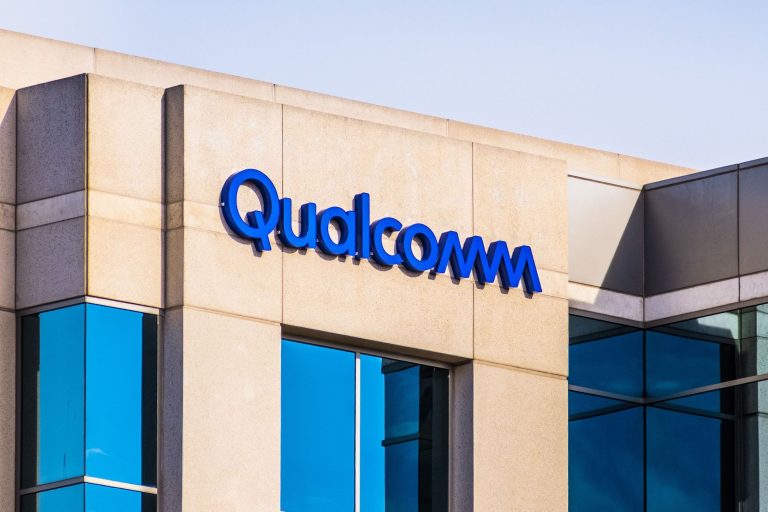In a surprising move that could reshape the semiconductor industry, Qualcomm has reportedly approached Intel about a potential takeover, according to a recent Wall Street Journal report.
The news follows Intel’s recent struggles to stay competitive in the fast-growing artificial intelligence (AI) chip market, a sector Qualcomm has been aggressively pursuing.
While the prospect of such a merger remains uncertain, it has already sparked market reactions, with Intel’s stock rising and Qualcomm’s shares dipping.
A deal of this magnitude would have significant implications for both companies and the broader chipmaking industry.
According to the WSJ report, Qualcomm, known for its dominance in smartphone chips, recently explored acquiring Intel, a storied Silicon Valley giant that has faced mounting challenges in adapting to the AI-driven future of chipmaking.
Exclusive: Qualcomm has approached Intel about a takeover in recent days on.wsj.com/3XQXobU on.wsj.com/3XQXobU
Intel has long been a leader in the PC chip market but has struggled to keep up with rivals like Nvidia and AMD in the AI sector.
An acquisition could allow Qualcomm to leverage Intel’s extensive manufacturing capabilities and further its ambitions in AI.
Intel’s stock reacted positively to the news, climbing 3.3% following the report, while Qualcomm saw a 2.9% decline.
With a market capitalization of $188 billion, Qualcomm is currently worth nearly twice as much as Intel, positioning it well for a potential takeover.
However, the size and complexity of such a deal would likely attract significant regulatory scrutiny, especially given antitrust concerns.
Intel’s struggles and missed opportunities
Intel has been grappling with a series of challenges in recent years, most notably in its manufacturing division.
The company, once a dominant force in the semiconductor industry, has fallen behind its competitors, particularly in AI chip production.
Missteps, including its decision to pass on an early investment in OpenAI, have compounded its difficulties.
As a result, Intel has lost significant market share to Taiwan’s TSMC and missed out on the explosive growth in AI chips that companies like Nvidia have capitalized on.
Since the start of August this year, Intel’s stock has slumped by 25% following announcements of major layoffs, with over 15% of its workforce being cut, and a suspension of its dividend.
The company is currently attempting a turnaround by focusing on AI processors and building out its chip contract manufacturing business, also known as its foundry.
However, these efforts have yet to pay off as Intel continues to struggle with its transition into the AI-driven chip market.
Qualcomm-Intel merger? Potential regulatory hurdles
Qualcomm’s business model differs significantly from Intel’s.
While Intel has historically manufactured its chips in-house, Qualcomm outsources production and licenses intellectual property from Arm Holdings.
This distinct difference could provide Qualcomm with an advantage, especially as Intel continues to falter in the highly competitive AI sector.
However, a potential Qualcomm-Intel merger could face regulatory challenges.
The size and scope of such a deal would likely trigger antitrust reviews, particularly in the US and Europe.
Additionally, reports suggest Qualcomm may explore selling off portions of Intel’s business to other buyers to alleviate regulatory concerns.
Intel to be removed from Dow Jones Industrial Average?
Adding to Intel’s woes, analysts and investors have speculated that the company could be removed from the Dow Jones Industrial Average due to its poor performance.
Intel’s shares have declined 56% this year, making it the worst performer in the index and the company with the lowest stock price on the price-weighted Dow.
Despite its struggles, Intel has made some recent headway in securing contracts for its foundry.
Notably, Amazon Web Services has signed up as a customer for custom AI chips, offering a glimmer of hope for Intel’s recovery.
A Qualcomm-Intel merger would be one of the biggest deals in tech history, with far-reaching consequences for the semiconductor industry.
For Qualcomm, the acquisition could accelerate its AI ambitions and give it control over Intel’s extensive chipmaking infrastructure.
For Intel, the deal could represent a lifeline in its efforts to reinvent itself amid fierce competition.
However, with significant regulatory hurdles and market uncertainty, it remains to be seen whether this potential deal will come to fruition.
The post Qualcomm approached Intel for a takeover, WSJ reports appeared first on Invezz

